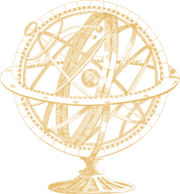“A strong reputation is like a good bonfire. When you have one kindled it’s easy to keep the flame burning, even if someone comes along and tries to piss on it.”
Zachary Taylor
Whigs love a war hero. How tragically ironic it would be to get another one elected just to see him suffer the same fate as the last one; dying in office, quite possibly due to the tainted water supply at 1600. The Whigs would be sorely disappointed (again!) by their choice of VP, but that’s another article.
Zachary Taylor, “Old Rough and Ready” to his men, was the quintessential American war hero. Veteran of the War of 1812, victor in the Black Hawk and Second Seminole Wars, his real coup de grace came via winning one unlikely victory after another in the Mexican-American War he had a role in starting. The book I read was even written by a war hero’s son, Zachary Taylor by John S.D. Eisenhower. The biography was fluid, engaging and made me want to read more about the conflict south of the border it created.
The 12th president’s political positions matched his political ambitions: he didn’t have any. He never endorsed the Whig Party fully, but thought Democrats Andrew Jackson corrupt and Martin Van Buren inept. Taylor never voted until he was the nominee for President. He built a lackluster cabinet, choosing not to employ any of the major players of the party or those who helped get him elected. There were many more Whig-like Whigs available in 1848. But Zachary Taylor, the party felt, was the only one who could get elected.
Whether he was ready with strong positions or not, Taylor faced substantial policy issues immediately. How heated were things getting in the Senate? Two senators got into verbal attacks for so many days running that one pulled a pistol on the other IN THE SENATE CHAMBER while the latter dared him to fire at an unarmed man(!) The slavery issue, kicked down the river for over fifty years, was rising to a boil. California statehood loomed, where Zach favored immediate statehood as a free (read: non-slave) state. Texas and New Mexico were in a border dispute that threatened armed conflict. Statehood debates about New Mexico and Deseret (Utah) raged if they should be admitted as free or slave-holding. The Fugitive Slave Act was being demanded by his fellow Southerners and a Central American canal was being urged on, brining with it the risk of war with Britain over its control. He would need to make some big decisions, and fast.
Now we get into the big What If? Old Zack was a slaveholder all his life. Interestingly, he was not in favor of its expansion. The Compromise of 1850 would put his principles to the toughest test. The proposed legislation was one of many crucial pivot points in American history on the long march to civil war. Together, the ragtag bill included 1) admission of California as a free state; 2) abolition of the slave trade (but not slavery) in Washington, DC; 3) admission of New Mexico and Utah as territories with popular sovereignty (the people living there get to decide the slave issue); 4) passing of the Fugitive Slave Act; and 5) the payment of $19 million to Texas to give up claims to western lands. Taylor was opposed to the Compromise bill and likely would have vetoed it or most of the parts if presented separately. But Old R&R never got the chance. He died in office as the legislation was being finished. Millard Fillmore, doughface copperhead that he was, signed it into law a few months after Taylor’s burial.
Old Zach is argued by multiple historians as maybe the man who could have directed the country away from civil war. A southerner who opposed the spread of slavery, a war hero of high integrity and popular enough to get re-elected, it’s a tantalizing question for sure. It seems like the three men between he and Lincoln have been deemed by history the biggest trio of presidential fuck ups America has ever seen. It’s not that Taylor gets a pass on the slavery issue (as mentioned, he owned them all his life), it’s just that I cast a wistful eye at history imagining what heinous laws could have been prevented had someone with his combination of experience and worldview stood tall at the critical moments. It stands to reason that the aging war hero could have mustered up the courage for one last heroic act – saving the Union from itself.
Trivia
- Malaria – killed 3 daughters and maimed his wife
- Father-in-law to Jefferson Davis, future president of the Confederacy
- Second cousin of 4th President James Madison
- When Black Hawk was captured after his namesake war, the two men who took immediate charge of him were Robert Anderson, who would later surrender Fort Sumter, and Jefferson Davis, future president of the Confederacy.
- 1848 was the first election where everyone voted on the same day (Nov 7)
- When President James Monroe took his trip to see the western frontier, accompanied by Major General Andrew Jackson, they partied with Taylor in Frankfurt, Kentucky.
- Clayton-Bulwer Treaty
- His last official act as president before dying, also his biggest accomplishment in office
- Made to ease tensions between the US and UK so they didn’t go to war over Central America
- Neither country could build a canal without consent of the other, neither could colonize in Central America and if the canal was built, it would be neutral for all shipping, not fortified or controlled.
Follow-up Reading
- The Training Ground by Martin Dugard
- Zachary Taylor: Soldier, Planter, Statesman of the Old Southwest by Jack Bauer
- So Far From God by John S.D. Eisenhower

